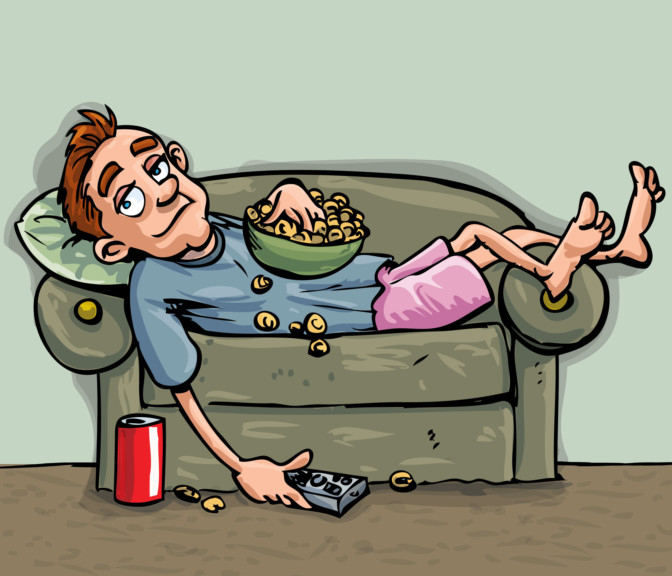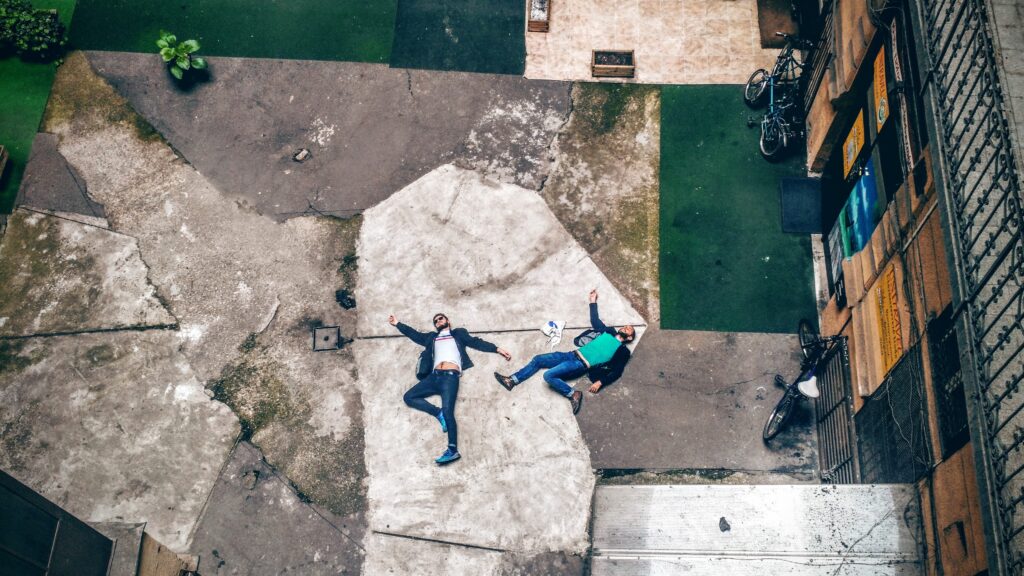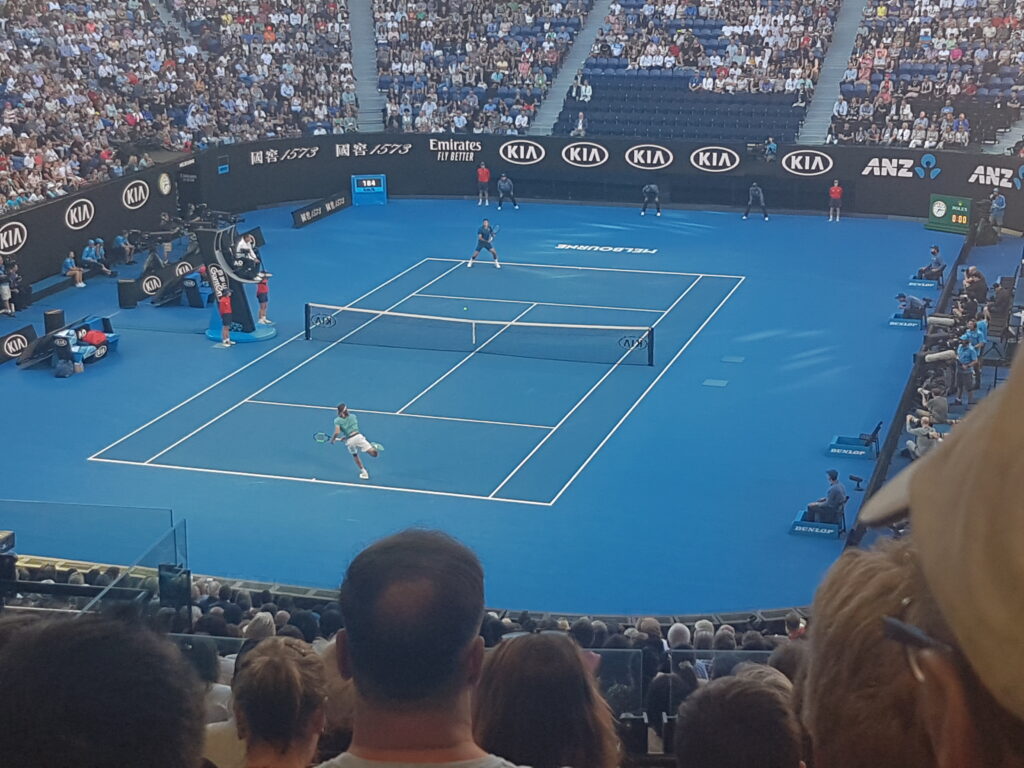Consistency and Discipline
Hal Elrod’s 2012 bestseller The Miracle Morning is just one example of the wildly successful self-help books published in recent times. Cynics abound: to many these books appear fad-like, akin to New Year’s Resolutions that garner excitement for a time before losing their shine.
I understand the reservations some may have, but I do believe there are valuable lessons to be learnt from these books/podcasts/videos (and to be fair, it’s unlikely they’d have the following they do without having some sort of track record in improving people’s lives).
In my experience, the greatest take-away from these books is the emphasis they place on routine and discipline. Take The Miracle Morning, for example: the author recommends waking at 5 or 6 every morning, doing some exercise, reading, meditating, reflecting and writing all before even sitting down for your morning meal (Elrod calls them his SAVERS – silence, affirmation, visualisation, exercise, reading and scribing).

Make no mistake – this is seriously hard to carry on with long term, which I think is part of the reason why people scoff at self-help books so much. It’s the same reason New Year’s Resolutions are very much treated as ritual rather than actual life-altering changes – we’re so used to sleeping late, waking at the latest possible hour (that hopefully still gets us to school/college/university/work on time), lazing around in our free time and complaining when we actually have to get something done. With so many things available at the press of a button, this is what modern life has become.
Ironically, we all know better. We marvel at the stories of the men like Edison who tried and failed a thousand times before making a lightbulb successfully. We think about rags-to-riches stories of people like Dr. Ben Carson, who put everything aside with the singular goal of achieving his dream. We think about the many success stories in sports around the world, like tennis’s Williams sisters, who rose from a childhood in Compton to becoming some of the greatest tennis players of all time.
But for many of us, hard work is just that. A valuable concept.
Discipline and routine appear overrated
Clearly, it’s not enough to simply believe in hard work, discipline and routine as merely a good idea – because if it were, we’d all be multi-millionaires sailing around on yachts in the Caribbean.
I think there are a few things in our modern world (beyond automation alone) that are responsible for our reluctance to pull ourselves up and stick to routine; principal among these is media.

According to a 2019 Nielsen report, the average American spends between 4 and 5.5 hours PER DAY engaging with TV content (either by streaming, cable, standard broadcast or gaming). That’s equivalent to between 60 and 84 DAYS per year – and I’d wager these numbers are comparable in other industrialised countries. Combine these numbers with some of the content seen on TV and it’s not hard to see why we find routine so strange in our day to day lives.
Consider Friends, perhaps one of the most popular TV shows of the last 50 years. The primary characters live in Greenwich Village, one of the most highly-sought neighbourhoods in New York City. As such, we would expect rent to be relatively high; yet, we rarely see these characters at their workplaces beyond the occasional foray. Much of the storytelling occurs at their apartment block. Phoebe and Joey are unemployed for significant stretches; even when they are employed, the job is typically far from what would be sufficient for their living expenses (with the notable exception of Joey’s prominent role on Days of Our Lives).
Yet even popular shows that examine ‘work’, such as The Office, portray a working environment so fantastical that it’s hard to imagine any of the workers would last any more than a few months at a regular workplace.

But I can’t blame the writers in these instances. The very fact that work/discipline/routine aren’t portrayed positively, if at all, is because these are boring. We aren’t entertained by someone smashing out pages of clerical work or by someone waking early to commute to work, because this is mundane – there’s nothing ‘different’ that piques our interest and keeps us engaged. And because we don’t see anything different, often content to live through the emotional ups and downs of the characters on the screen without being spurred on ourselves to go out and achieve something in the world.
I think sports coverage suffers from the same problem – channels dedicate hours and hours to analysts who pore over the minutiae of a game. Tactics, player errors and more. They tend to take the player’s ability for granted, not remembering their place as a fellow human, and often forgetting how difficult it is to do what they do. A fantastic example of this in practice is ESPN’s Katie Nolan inviting football fans to try and perform certain tasks they lambasted players for failing to do. Naturally, none of the fans selected for the segment succeeded (and none came remotely close – wouldn’t have made for such good TV otherwise) – emphasising how little we appreciate the skill and effort required for these sporting activities. I’ve linked both videos below so take a look!
Sports broadcasters won’t show Kevin Durant’s family living from paycheck to paycheck; they’re not going to show Novak Djokovic practising in empty Olympic swimming pools in war-torn Belgrade; they’re not going to show the hours Eliud Kipchoge spent running to and from school during his childhood. They will show these athletes lifting up trophies and wearing medals though – we celebrate the result without honouring the process.
Where to?
We would all desire consistency, discipline and routine – how in the world do we pick and stick?
You do need to want it enough – your will to grab a few minutes’ extra sleep needs to be outweighed by your desire to wake up and set yourself up well for the day. Your drive to stick to your plans for the evening needs to overcome your longing to run through another episode of the Bachelorette. Perhaps most importantly, your dreams for success need to overwhelm your satisfaction with mediocrity.

The third point here is probably the sealer – when the discipline required to achieve a dream becomes inconvenient, most of us remember that we are content with wandering along in our comfortable, day-to-day lives. Look: contentment is a good thing, but that should never give rise to complacency. There is so much potential in every one of us, and all it takes is one person to believe in you in order to unlock that potential and make it blossom. Maybe it’s time to make that belief start with you?
Keeping it real
What helps us stay motivated? How can we allow this to stay with us through the ups and downs of life such that we don’t falter in our routines?
In short, I think the biggest influence is the people you have around you. It is these who are either going to help or hinder you. They can keep you accountable and disciplined, or they can be like anchors weighing you down.
Accountability is often a dirty word (because of the sometimes negative connotations – who wants someone policing them all the time?) but many report its success. Some key advantages noted regarding accountability include:
- Ensuring you stay committed to the task you assign to yourself
- Gaining advice and feedback on areas of improvement
- Providing encouragement as you learn to master difficult tasks/activities
- Helping provide different perspectives and strategies through which goals can be achieved
You can choose anyone to keep you accountable and disciplined as you chase your goals – the easiest would be to start with your family and closest friends.
Another key strategy to remaining determined and disciplined as you pursue your dreams is to have well-defined goals that can be broken down into ‘sub-goals’, if you will. These ‘sub-goals’ should ideally be easily achievable – doing this will make the task at-large appear more accessible that it does as a big-picture vision.
I’ll borrow from Elrod here as well and say that visualisation is an excellent tool that can help you fixate on your goals regularly and keep them in your mind. Visualising things is tried and tested – and from personal experience, we all know that having something to look at is far more memorable that maintaining goals as abstract thoughts and notions in the mind.
An example
In January this year I had the privilege of watching tennis legend Roger Federer (ranked 3 and aged 37 at the time) play up-and-coming Stefanos Tsitsipas (ranked 15 and aged 20 at the time) in the 4th round of the Australian Open. The match was a seesawing thriller, lasting more than 3.5 hours over four pulsating sets of tennis.

If you’re familiar with tennis in any way, you would know that Roger Federer is by far the most popular player currently on tour, and commands heavy crowd support anytime he plays. This makes it incredibly difficult for his opponents to stay focused in the moment and maintain their concentration – they’re often fighting two opponents.
Yet Tsitsipas remained strong. He saved all 12 break points he faced during the match and won in four very, very tight sets (. Obviously, mental strength is one aspect of this, but dedication to your craft and trusting your preparation is another part of this that I think is overlooked. In fact, I think Tsitsipas’s rise in the tennis world over the course of this year is backed by all three strategies I mentioned in the section above, with accountability and well-defined goals being key focuses in his case.
In Tsitsipas’s case, I believe the close circle he keeps around him plays a primary role in helping him stay focused, and mentally strong. However, I think their role is even more important (yet also underappreciated) behind the scenes in helping Stefanos maintain discipline in his training and routines.
Tsitsipas’s primary coach is his father, and he mostly travels to tournaments with his family. I believe this is one of the secrets underlying his self-belief – he has people around him who are always there to encourage him and remind him to stay committed and consistent in the path he is taking. I have no doubt this is the case on the practice court as well. In fact, the ATP note as much in a feature article on the Tsitsipas family – his mother (once an professional tennis player herself) was largely responsible in helping Stefanos maintain discipline as a youngster coming through the ranks.
Beyond having people around him to keep him accountable, Tsitsipas also appears to set himself some clearly defined goals (which, while challenging, are also achievable with hard work). He set four goals for 2019:
- Make the top 10
- Make the semi-finals of a Grand Slam
- Win a Masters 1000 tournament
- Qualify for the ATP Finals
Note that none of these goals were too farfetched at all given his position at the start of the year (ranked #15, having made a Masters 1000 final already). The goals were realistic, yet Tsitsipas would have required just that little something more to push on and reach his goals. This is essential as a motivating factor – I’m sure this would have helped Stefanos stay disciplined and motivated to work towards the goals he set.
The result: Tsitsipas reached three of the four goals (he’s currently ranked 6, he made the semis of the Australian Open, and he qualified for the ATP Finals). It could be argued that with the fourth he surpassed the goal completely (he didn’t win a Masters 1000 tournament this year, but he did win the ATP FInals, which is a much more difficult feat).
For the upcoming year, I believe Tsitsipas is aiming to win a Grand Slam Tournament – again, a realistic goal that doesn’t appear to be a jump too far. Time will tell whether or not he cracks on to achieve this.
To finish
We all want discipline, we all want consistency – they’re tough to achieve but with the right mindset, the right tools and the right people around you, it’s possible to go on and achieve great things.
Elrod’s blog post about his morning routine (again, I’m not sponsored; just providing a link if you want more information): https://halelrod.com/6-minute-miracle-morning/
The Office video: https://www.youtube.com/watch?v=6VhnU3_-KUY
Nielsen report findings: https://www.nielsen.com/us/en/insights/article/2019/streaming-friend-or-foe-to-local-markets/
Nolan with football fans: https://www.youtube.com/watch?v=SnGauxFbGbE and https://www.youtube.com/watch?v=8tQFEn_Hcec
Benefits of accountability: https://accountable2you.com/accountability/benefits-of-accountability/
Tsitsipas feature: https://www.atptour.com/en/news/apostolos-tsitsipas-father-coach-feature-2019
Tsitsipas 2019 goals: https://www.usopen.org/en_US/news/articles/2019-11-15/hot_shots_federer_djokovic_nadal_at_atp_finals_france_wins_fed_cup.html
Tsitsipas 2020 goal: https://edition.cnn.com/2019/11/18/tennis/tsitsipas-atp-finals-tennis-spt-intl/index.html
Featured image by Garrhet Sampson on Unsplash